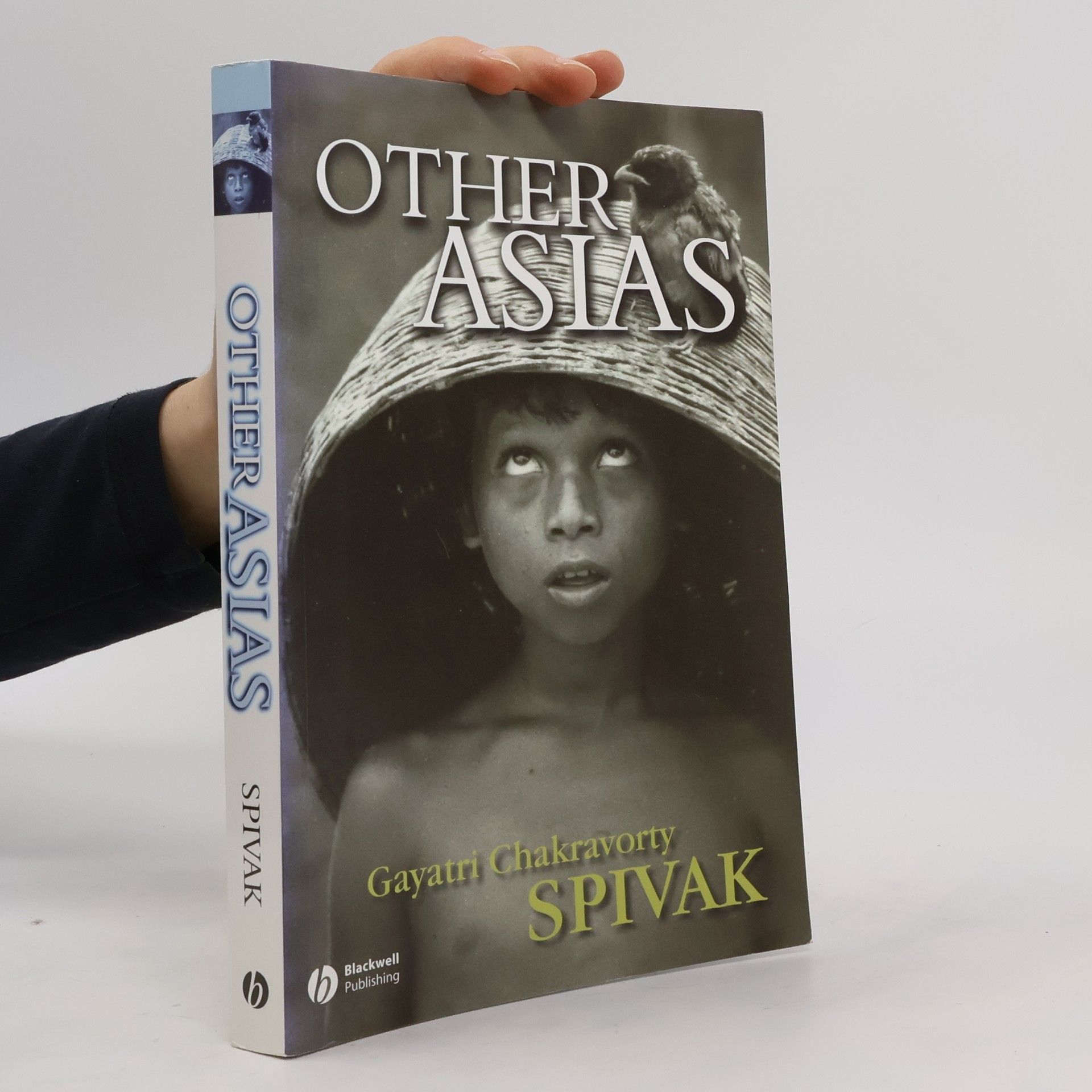Výbor teoretických studií a esejů je čtvrtým svazkem série Postkoloniální myšlení. Tato série má volně chronologickou návaznost a obsahuje jak překlady ucelených knih (Frantz Fanon – Černá kůže, bílé masky a Homi K. Bhabha – Místa kultury), tak dvě antologie vybraných textů. Stávající svazek se zaměřuje na následující období od osmdesátých let dvacátého století po současnost. V průběhu této doby se postkoloniální reflexe autorů a autorek působících na převážně anglo-amerických univerzitách rozvinula napříč celou sférou humanitních disciplín. Tato reflexe přináší kritickou revizi filosofických, historických, antropologických, literárních, kulturních i genderových či jinak předsudečně zaměřených reprezentací, identit a narativů/vyprávění dějin. Klíč pro pochopení současné situace nejen v kolonizovaných zemích, ale také v kontextu globalizace je možné nalézt v rozličných proměnách pojmu postkoloniality. Sám tento pojem není však nikterak homogenní a byl či je často problematizován pro svoji historickou neurčitost, teoretickou nezakotvenost či obecně pojmovou proměnlivost. Smyslem výboru je českému čtenáři nabídnout pluralitu přístupů a kritických stanovisek teoretického postoje, jenž vedl ke změně společenskovědního paradigmatu v posledních třiceti letech.
Gayatri Chakravorty Spivak Knihy
Gayatri Chakravorty Spivak je univerzitnou profesorkou na Kolumbijskej univerzite. Je známa svojím anglickým prekladom zásadného diela Jacquesa Derridu „O gramatológii“ a svojimi vlastnými filozofickými prácami o postkoloniálnom stave, ktoré zaviedli pojem „subaltern“ do filozofického lexikónu.






Rewriting Difference: Luce Irigaray and 'the Greeks'
- 289 stránok
- 11 hodin čítania
Exploring the intersection of philosophy and classical literature, this reader delves into Luce Irigaray's innovative interpretations of Ancient Greek texts. It presents a transdisciplinary approach, highlighting Irigaray's unique perspective on gender, language, and the philosophical implications of these ancient works. By examining her re-readings, the collection fosters a deeper understanding of both Irigaray's contributions and the enduring relevance of Greek literature in contemporary discourse.
Gayatri Chakravorty Spivak, 'Can the Subaltern Speak?' 1985, Estefania Peñafiel Loaiza Two Works Series
- 148 stránok
- 6 hodin čítania
Gayatri Chakravorty Spivak's landmark essay in decolonial thought is animated for a new generation with art by Estefanía Peñafiel Loaiza In 1985, Indian scholar Gayatri Chakravorty Spivak (born 1942) published what would become a landmark essay in the academic study of colonialism. "Can the Subaltern Speak?" interrogates the obstructions that prevent certain subjects from being heard and how this state-enforced silence maintains the degradation of those at the peripheries of society. Over three decades later, Spivak's piece is perhaps even more compelling in its affirmation of Marxism's relevance to contemporary decolonial thought. This volume revives Spivak's text for yet another generation of thinkers, placed in dialogue with artwork by Ecuadorian artist Estefanía Peñafiel Loaiza (born 1978). Loaiza's preoccupation with questions of occlusion and the need for and absence of image makes for an art series that shares a clear kinship with Spivak's line of reasoning. Loaiza's visual vocabulary echoes and refracts the central ideas put forth by Spivak in a compelling new interpretation of this essential text.
Other Asias
- 176 stránok
- 7 hodin čítania
In this major intervention into the 'Asian Century', Gayatri Chakravorty Spivak challenges the reader to re-think Asia, in its political and cultural complexity, in the global South and in the metropole.Major work from one of the world's most distinguished literary and cultural theoristsIntervenes in the fraught issues generated by ideas of AsiaFeatured essays include "Foucault and Najibullah," "Moving Devi," "Responsibility," and "Megacity"Other chapters focus on, among other things, Human Rights, and the turbulent "present" of the CaucasusEssential reading for anyone interested in postcolonialism, and devotees of Spivak's writing
A Critique of Postcolonial Reason
Toward a History of the Vanishing Present
- 464 stránok
- 17 hodin čítania
Exploring the intersection of culture wars, gender struggle, and class dynamics, Gayatri Spivak delves into the responsibilities of the postcolonial critic. She critically examines the role of the "native informant," offering insights into how this figure influences contemporary discourse and understanding within postcolonial contexts. Spivak's work challenges readers to reconsider the implications of these cultural conflicts and their relevance today.
Gramatológia
- 314 stránok
- 11 hodin čítania
Prvá čať tejto eseje, Písmo pred písmenom, širokými ťahmi načrtáva teoretickú matricu. Naznačuje určité historické značky a predkladá niektoré kritické pojmy. Druhou časťou je Príroda, kultúra, písmo.
The book features a dynamic dialogue between historian Romila Thapar and theorist Gayatri Chakravorty Spivak, exploring the complexities of Indian identity. Through anecdotes and reflections, they navigate the historical narratives that have shaped the notion of India, addressing the challenges of essentialism and exclusion. The authors highlight the importance of education in fostering an inclusive understanding of the nation's diverse history, while tackling themes of nationalism and religion. Ultimately, they pose a critical question about contemporary Indian identity.
This book introduces and discusses the works of leading feminist post-colonialist Marxian deconstructionalist Gayatri Chakravorty Spivak, by exploring the keyconcepts and themes to emerge from them. -- Google books.
Who Sings the Nation-State brings together two of America´s foremost critics and two of the most influential theorists of the last decade. Together, they explore the past, present and future of the state in a time of globalization. What is contained in a state has become ever more plural whilst the boundaries of a state have become ever more fluid. No longer does a state naturally come with a nation. In a world of migration and shifting allegiances - caused by cultural, economic, military and climatic change - the state is a more provisional place and its inhabitants more stateless. This spirited and engaging conversation ranges widely across Palestine, what Enlightenment and key contemporary philosophers have to say about the state, who exercises power in today´s world, whether we can have a right to rights, and even what the singing of the Star Spangled Banner in Spanish says about the complex world we live in today.
Spivak Moving
- 1100 stránok
- 39 hodin čítania
This collection offers a broad range of Spivak's recent essays, lectures, and other writings that speak to her groundbreaking work in feminism, deconstruction, Marxism, and subaltern studies. The pieces collected in Spivak Moving touch on a variety of topics, including her crucial thinking on pan-Africanism and W. E. B. DuBois, reproductive heteronormativity, art and film, class apartheid in education, practices of institutional critique, and the training of imaginative activism through a sustained engagement with the humanities. She moves from a look at the unsystematized first languages of continental Africa into a broader consideration of human rights, international civil society practice, the question of terror, the "freedom" of the academic, and the place of the digital. About half the essays are collected here for the first time and are not found in Spivak's several published essay collections.

